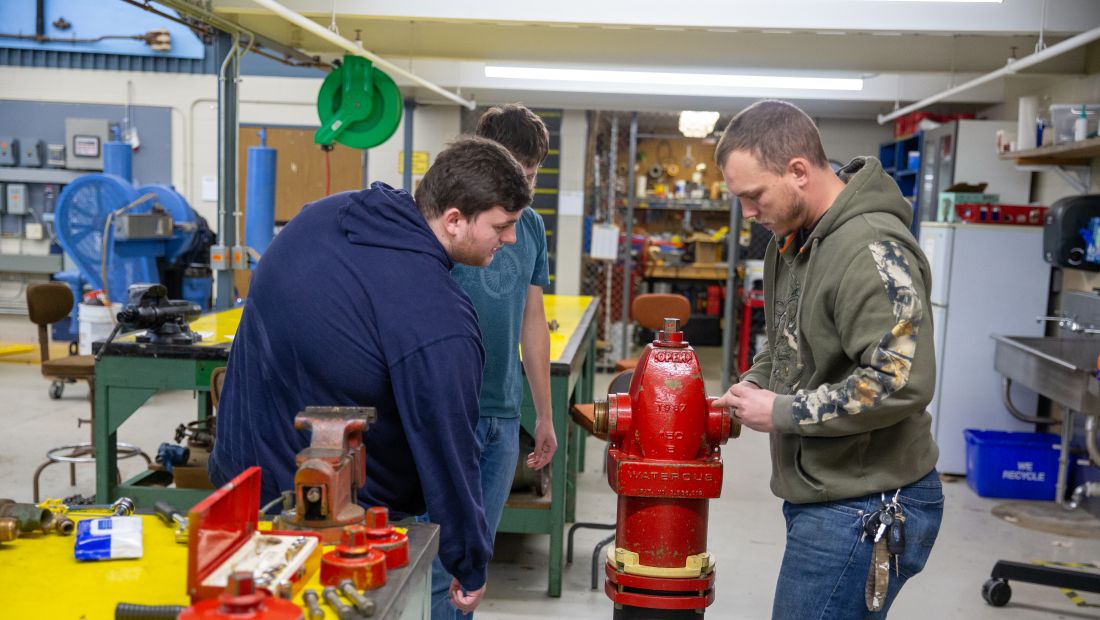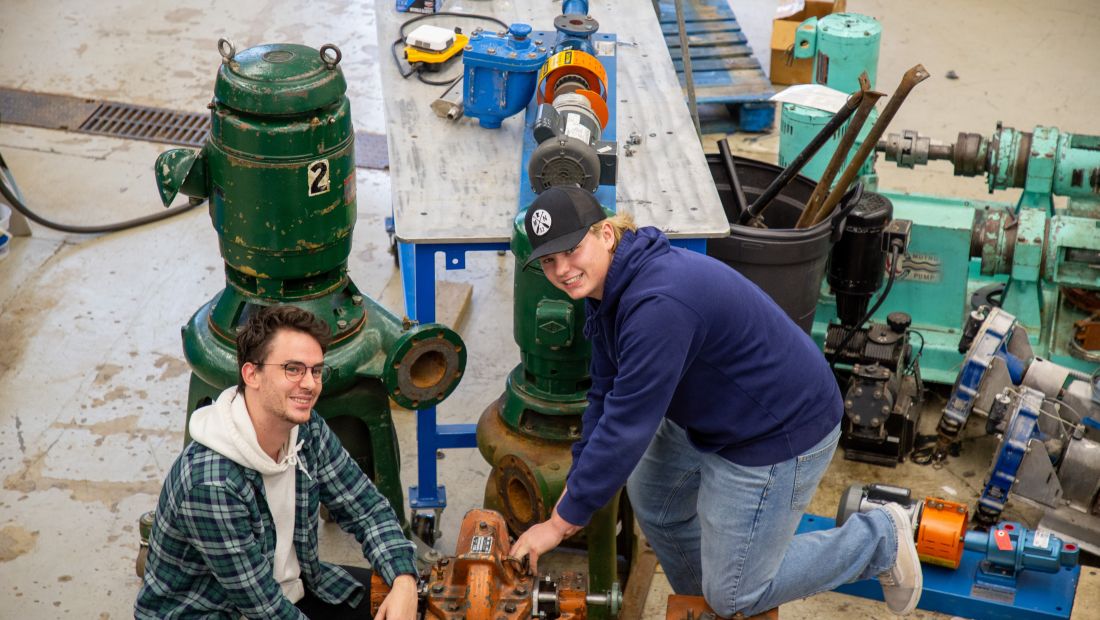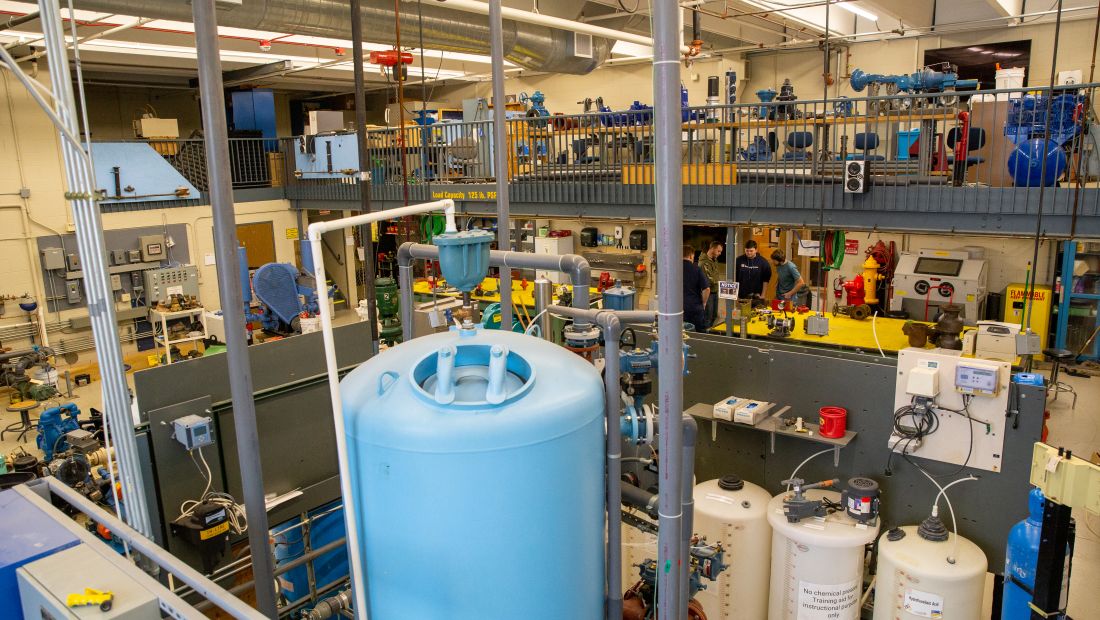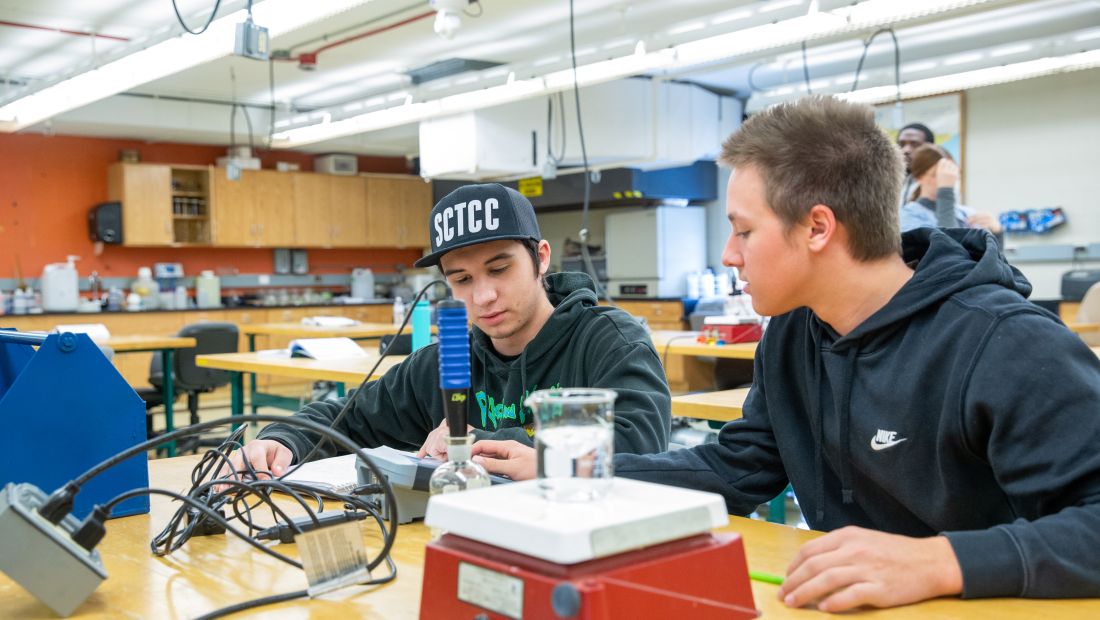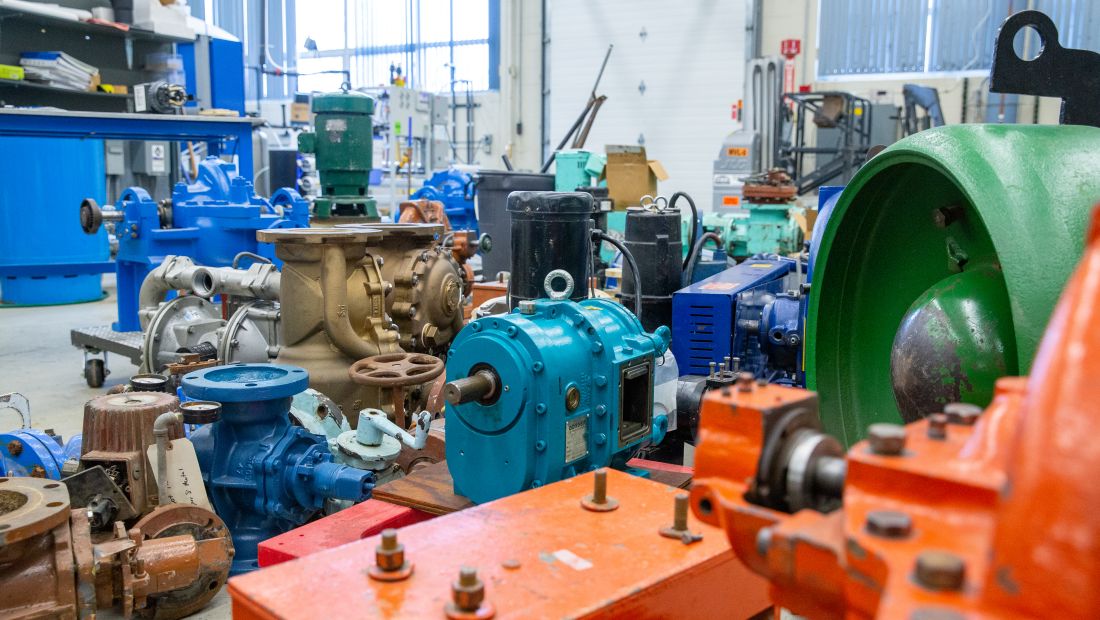DEGREES IN Water Environment Technologies
Water Environment Technologies Associate of Applied Science
By the Numbers
Water Environment Technologies Diploma
By the Numbers
Why Choose This Program
Water Environment Technology grads are in high demand across the country.
Water Environment students will learn a variety of chemical, biological, physical, and mechanical water and wastewater treatment processes and techniques.
Students will learn the processes of getting water from its source, treatment, distribution, collection, and treatment again on its way back to the source. Students learn to identify, troubleshoot, and solve problems they might see in the treatment process.
Graduates play many roles in operations of water and wastewater treatment facilities, sewer, collection systems, and water distribution systems. There are also many career choices outside of city or county water and wastewater treatment facilities, including agricultural, paper, beverage, ethanol, and manufacturing industries as examples.
Placement rate is self-reported data of graduates available for work in field of study up to one year post graduation. Wage data is from Minnesota Dept. of Employment and Economic Development (DEED). SCTCC Consumer Information.
From Degree to Career
When you choose the Water Environment Technology program at SCTCC, you’ll gain skills that will directly transfer to the workplace. There are employers across the country that are ready to hire water professionals, including St. Cloud Hospital, City of Bloomington, Cold Spring Brewing Company, and more.
Quick Glance
- Water and wastewater treatment process control
- Mechanical aptitude in a variety of areas
- Laboratory skills utilized in water treatment
- Basic electricity & controls logic
- Math (process control, chemical dosing, process design)
- Computer (SCADA, word, excel, PowerPoint)
- Communication (oral, written, electronic)
- Use of hand and power tools
- Process and Equipment Troubleshooting & problem solving
- Equipment operation
- Preventative maintenance and repair
- Regulations and Regulatory Compliance
- Safety
- Utility administration and planning
- Customer Service
View all program learner outcomes
- Operations of water & wastewater treatment facilities
- Sewer collection system operations
- Water distribution system operations
- Laboratory Analysis (Quality Control & Quality Assurance)
- Treatment plant residuals (solids handling)
- Supervisor of plant operations or public works
- Maintenance of utility systems
- Water meter reading, troubleshooting, and repair
- Electronic systems repair & maintenance
- Regulatory enforcement
- Inspections of water and wastewater systems
- Training & Education
- Sales of industry related equipment and services
Potential Employers
Government agencies:
- Municipal (local)
- Water Management Districts
- County
- State
- Federal
- Tribal
Private organizations:
- Industries with a manufacturing process that requires the business to operate its own water and wastewater treatment systems.
- Contract Operations Companies – Operation and maintenance of municipal and industrial water and wastewater systems.
- Equipment and Service Vendors – Suppliers of equipment and services utilized by the water and wastewater industry.
Quick Glance
- St. Cloud Hospital
- City of Bloomington
- Cold Spring Brewing Company
- City of Brainerd
- City of Buffalo
- St. Cloud Technical & Community College
- City of Minneapolis
- MET Council
Water Licensure - Upon completion of the WETT program, students are prepared to take their Class “D” Water License proctored by the Minnesota Department of Health (MDH).
Wastewater Licensure - Upon completion of the WETT program, students are prepared to take their Class “D” Wastewater License proctored by the Minnesota Pollution Control Agency (MPCA).
Students who successfully pass the state exams receive Class D Water and Wastewater certificates, which are required to operate of water and wastewater treatment facilities for both public and private entities.
95% of all students who took the Class “D” Water and Class “D” Wastewater License exams successfully passed both exams within six months of completing the technical courses in the WETT program.
Employment at a qualified Water or Wastewater facility allows a licensed operator to advance their licenses to higher levels. SCTCC graduates with a four-year degree in the Sciences (e.g. Engineering, Biology, Chemistry) may qualify to be able to advance their water and wastewater licensure even faster!
Ready to Take the Next Step?
Are you ready to learn more about the Water Environment Technology program and being a student at SCTCC?

Fill out this form to receive useful information that's specific to your program.
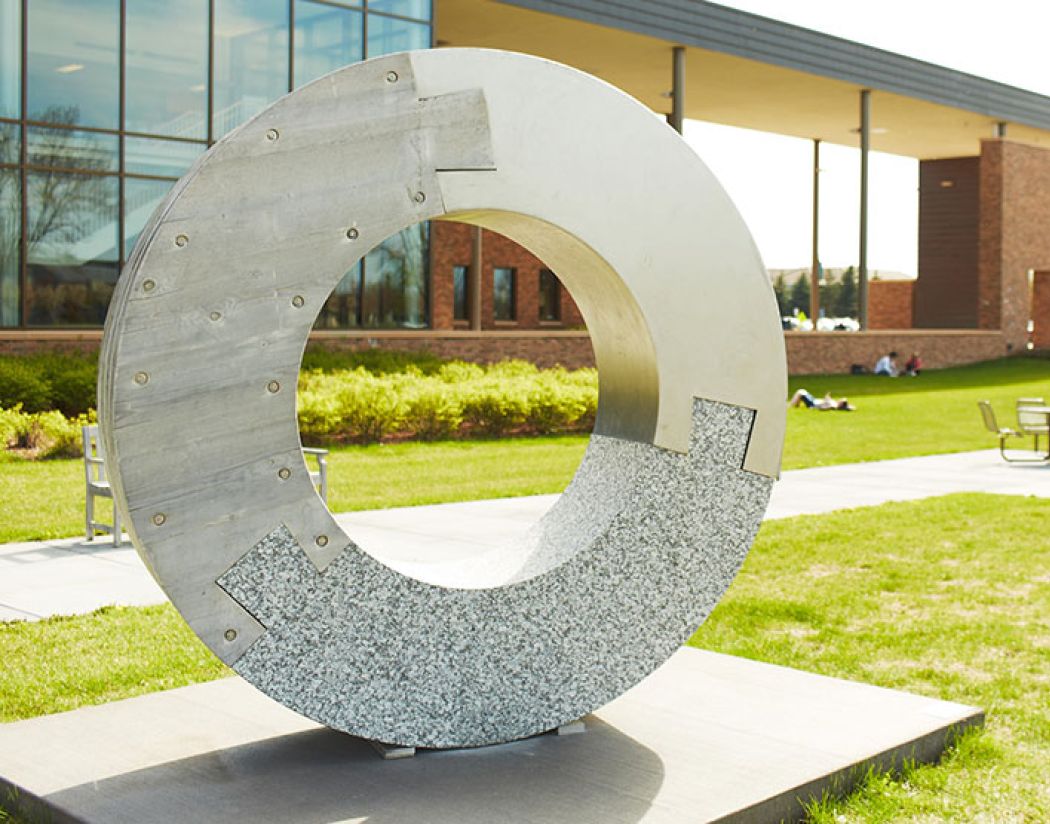
- Call us at 320-308-5089
-
Email us at recruitment@sctcc.edu
- On campus Monday-Friday, 8 a.m.-4:30 p.m.
Visiting campus is an excellent opportunity to learn about SCTCC programs, the application process, and tour the state-of-the-art-labs and classrooms.
Paying for College
Students choose SCTCC for a lot of reasons, but saving money is one reason we hear from almost every student at SCTCC. We’ve got a breakdown of the costs for the program, along with information on financial aid and scholarships.
The following scholarships are available specifically for WETT students:
- GNP
- John Seivert Memorial
Apply just once and you are considered for all eligible SCTCC Scholarships
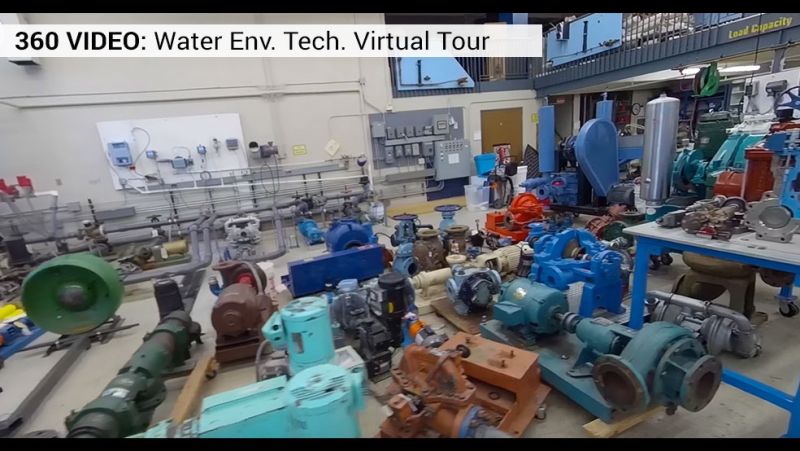
Program Info for Current Students
- WAMM (SCTCC Student Water Club)
- Water Environment Federation (WEF) Professional Organization
- American Water Works Association (AWWA)
- Minnesota Wastewater Operators Association (MWOA)
- Minnesota Rural Water Association (MRWA)
Water Environment Technologies Instructor

Good Stuff
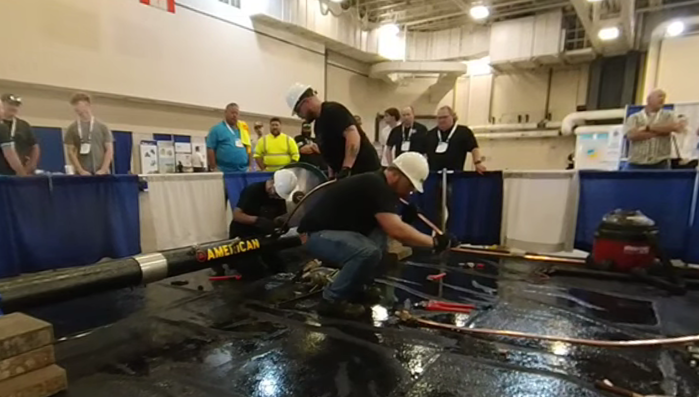
Water Environment Tech Students Grace Cover After Pipe-tapping Competition
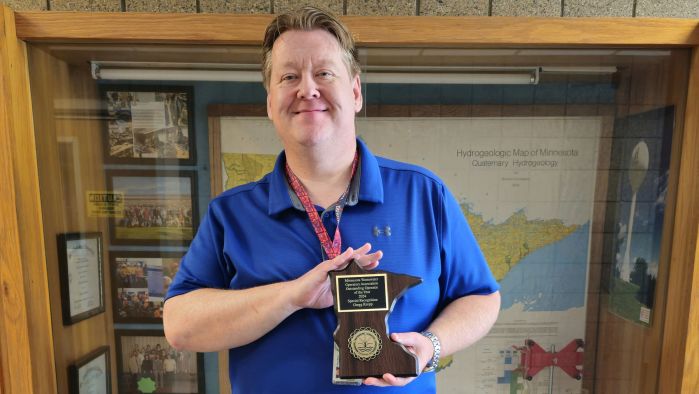
WETT Instructor Gregg Kropp Wins Operator of the Year
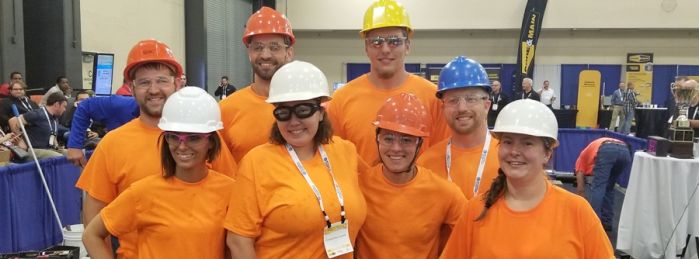
Students Have Strong Showing in Competition with Water Professionals
More Like Water Environment Technology


